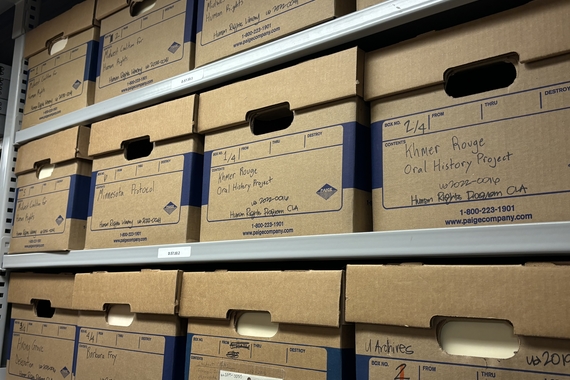Human Rights Hitting Close to Home: Student’s Research in South Asian Conflict and Asian Hate Crimes in the U.S.
The Human Rights Program strongly believes in the importance of integrating professional experience with academic knowledge in the field of human rights, making internships one of the main requirements of the program. Many students succeeded in doing amazing work with their host organizations. In this Q&A series, we interview our students to learn more about their experiences. In the first Q&A of the series, we are joined by Siyu Samantha Ng, a second-year Master of Human Rights (MHR) student.
Human Rights Program (HRP): Can you tell us more about your educational background, specifically at the University of Minnesota, and your professional experience? How did both contribute to your decision in choosing these particular internships and the host organizations?
Siyu Samantha Ng (SSN): Currently, a second year Master of Human Rights student at the Humphrey School of Public Affairs, my concentration surrounds international advocacy and human rights and race. Born and raised in Hong Kong, I came to Minnesota for college and discovered my passion in social justice. I graduated amidst the humanitarian crisis in Hong Kong and have watched close friends along with frontline advocates getting thrown in jail by a depraved system. The deterioration of democracy and human rights was a brutal awakening that affirmed my desire to apply for the Master of Human Rights at the University of Minnesota. My upbringing made me eager to acquire substantial knowledge in international human rights, which was why I wanted to do a fellowship with the United States Institute of Peace (USIP). At the same time, with the rise of hate crimes and violence towards all Asian descents’ communities, I feel the same pain, frustration, and disappointment as other fellow BIPOC communities. My graduate assistantship with Hennepin-University Partnership (HUP) under HCRA, allowed me to work with the “Anti hate/Hate Crime Prevention” project for the Safe Communities Department, and thus uplifted and amplified the voices of different marginalized communities.
HRP: Please describe your summer internships, the host organizations, your role in those organizations, and the projects you worked on.
SSN: For my fellowship with USIP, I worked as a Visiting Scholar and contributed to the substantive analysis in support of their Burma Program, including work on the justice models in Myanmar as well as additional research, writing, and general project contributions to advance the Burma program. I was able to submit an op-ed for USIP, which was about the Myanmar team, while completing different training courses that were offered by the Burma team. Not only did I gain substantial knowledge on the humanitarian crisis in Myanmar, but I also comprehended the role and work of USIP in conflict resolution.
For my graduate assistantship with HUP, I specifically collected, organized, and analyzed hate crime data from other counties in Minnesota, the FBI, and U.S. Department of Justice to create the framework and conduct research in the “Anti-hate/Hate Crime Prevention” project. I worked closely and collaborated with other RAs within the cohort, County staff, HUP staff, and mentors, and eventually, provided an oral presentation of hate crimes and the gaps and future directions to Hennepin County.
HRP: How did the internship add to your professional experience and personal growth? and how do you see it impact your career trajectory?
SSN: Unfortunately, my fellowship with USIP had to cut short due to the passing of my grandfather, so I didn’t get the full experience as a Visiting Scholar. Nonetheless, I was still able to grasp the diverse methods of conflict resolutions and preventions, when seeking peace to reduce all forms of violence, as well as the significance of global security when presented in different countries, cultures, and contexts. Meanwhile, my GA with HUP gave me a lot of freedom and flexibility when creating and addressing the “Anti-hate/Hate Crime Prevention” project, including the whole research design, the methodology, and the presentation of the final report. Through the collaboration with the Hennepin County: Safe Communities Department, I was able to learn the structure and mechanism of the U.S., which was invaluable as an international student. I really enjoyed the exposure and experience working in both domestic and international sectors, the internships expanded my interests differently and have honestly broadened my career trajectory.
HRP: How did working at these two organizations simultaneously strengthen the work in both? Did you learn skills in either that you were able to apply to the other internship?
SSN: In hindsight, both organizations worked to advocate for human rights and inequality in social justice. One focused on the oppression of Burmese and the other focused on marginalized communities within the U.S. Though in completely different sectors, both organizations simultaneously work for the greater good of humanity. It is clear that there is an urgency and importance in human rights advocacy, and I was able to turn my passion into meaningful policy change through both of my internships. Academically, I gained immense organizational, analyzation, and collaboration skills, particularly in community-based research.



